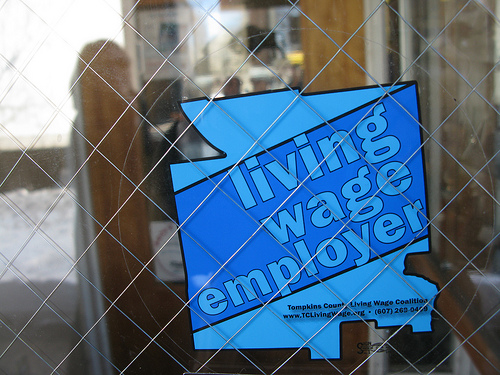
On March 3, 2013, the Austin American-Statesman banner masthead read, “’Living Wage’ Proviso Targeted.” (See the article, “Dallas legislator aims to stop wage requirements in incentive deals.”)
Apparently, the Dallas legislature does not want Texas municipalities, Austin-led, to require companies to pay “living wages.” The federal minimum wage is $7.25/hour, but Austin, like the federal government, has now plucked an imaginary number out of the air and dubbed it a “living wage” at only $11.00/hour. For the moment, let’s put aside the issue as to whether or not a municipality should be able to exercise its power position of employer to extract better wages for its employees.
To be clear, $11/hour is not a living wage.
A living wage is an amount that ensures that a person working 40 hours in a week will be able to afford basic: food, clothing, shelter (including utilities), and public transportation. In Austin, it is $13.10/hour. This is calculated by using a 40-hour-a-week job, spending no more than 30% of one’s income on housing ( a national banking standard), and HUD’s Section 8, Fair Market Rent Formula. It is also calculated based on the cost of an efficiency apartment in Austin, which is $681 on average.
To pay a lower wage can result in economic homelessness. At this pay scale, 3.5 million people will again face homelessness in our nation this year.


